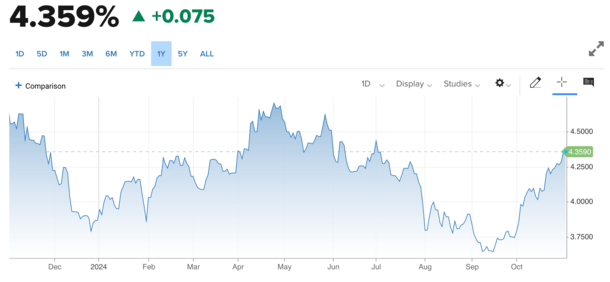Motto Mortgage still recording losses for Remax in Q3
unitedbrokersinc_m7cmpd2024-11-01T18:22:27+00:00Remax Holdings third quarter operating earnings beat analysts' estimates even as the franchisor's primary industries of real estate and mortgage were working their ways through uncertain times, CEO Erik Carlson said on its earnings call."We remain centered on what we can control, and we believe our third quarter financial results are further proof that our actions are making a difference," Carlson said.Net income attributable to the company was $966,000, down from $3.7 million in the second quarter and a loss of $59.5 million one year prior. Operating earnings per share of 38 cents beat Keefe, Bruyette & Woods and street consensus estimates of 35 cents.For the Motto Mortgage business, September's performance showed that "rates do matter," Carlson said, pointing to the most franchise sales since March 2023 as well as the year-to-date high in loan submissions during the month.Still the mortgage business was operating in the red as measured by adjusted EBITDA, recording a loss of $1.12 million in the third quarter. This compared with a loss of $1.68 million three months prior and a loss of $1.49 million one year ago.On a net business, Motto lost eight franchises on a year-over-year basis in the quarter and was at 234 offices as of Sept. 30. It is the first time since Remax started the Motto business that the number of operating franchise offices has declined, Carlson said."A few existing franchises have terminated due to their financial position, lack of transaction activity or not being connected to the real estate transaction," he explained. But as the economy changes direction, Remax expects the business to resume its upward trend.On the real estate side, the National Association of Realtors' change in commission structure occurred midway through the quarter on Aug. 17."We believe in prioritizing consumer interests over practices that benefit a few at the expense of many," Carlson said. "As the industry moves forward, there will continue to be discussions around industry practices that may result in further change.Headwinds in the mortgage industry are "outsized" compared with those in the real estate business, added Karri Callahan, chief financial officer."While there's still a little bit of mud in our boots from a collections perspective [of franchise fees] on the mortgage side financially, I think operationally, there's some cautious optimism that we're moving in the right direction," Callahan continued.The mortgage unit looks to work with its broker franchise owners much the same way the real estate business does, added Ward Morrison, president and CEO of Motto Mortgage."Even though they are having some issues right now in one of the toughest mortgage markets ever, we continue to provide that support, that education and the tools that they need to be successful...and get them through this unusual market," Morrison said.Going forward, Hurricanes Helene and Milton affected a number of franchisees and that will also have an impact on Remax' revenues in the current quarter, the company said on the call.

